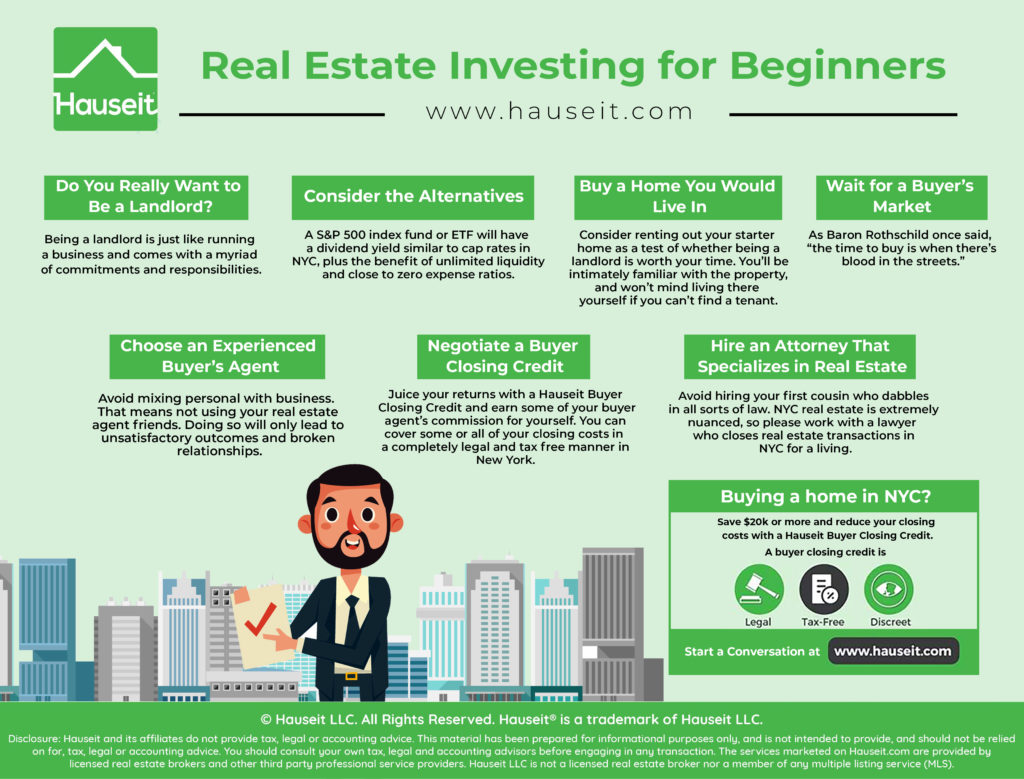
Real Estate Investing for Beginners: Getting Started
When it comes to building wealth, real estate stands out as a proven powerhouse. You’ve probably heard success stories or maybe even know someone who’s cashing in on rental income or has made a fortuitous flip. That’s because real estate investments can be quite rewarding. But where do you begin? Here’s a beginner’s guide to help you step into the world of real estate investing with confidence.
Understanding Real Estate Investment
Real estate investing is more than just buying a home. It’s a strategic move to acquire property that will generate income or grow in value over time. The beauty of this type of investment is its tangible nature—you can see it, improve it, and depending on your strategy, use it as a passive income generator or a hands-on business venture.
Educate Yourself
First things first, hit the books—well, in today’s world, hit the internet. Learning is your strongest ally. You’ll want to familiarize yourself with the basics: the lingo, the market trends, the different types of real estate investments (like residential, commercial, industrial, and land), and the varied strategies (such as buy and hold, fix and flip, or wholesaling).
Set Your Goals
What’s your endgame? Are you looking to generate passive income through rental properties, or are you more interested in the potentially quick returns of a flip? Your goals will influence your strategy, so defining them clearly will guide your next moves.
Get the Finances in Order
Investing in real estate isn’t something you jump into without a financial game plan. Figure out how much money you can afford to invest without jeopardizing your current financial stability. It’s also crucial to have a good credit score as it will affect your ability to secure loans with favorable terms.
Explore Financing Options
Speaking of loans, there are various financing options available for real estate investments. Aside from traditional mortgages, there are government-backed loans, home equity lines of credit (HELOCs), and private lenders, among others. Each comes with its own set of pros and cons, so make sure to find one that best suits your investment plan.
Start with a Market Analysis
Location, location, location—it’s the golden rule of real estate. Understanding the market where you want to invest is crucial. Look for areas with growth potential, be it through employment rates, development projects, or other economic factors. You’ll want to invest in a market that promises a good balance of demand and stability.
Choose the Right Property
Now that you’ve zeroed in on a market, it’s time to select a property. If you’re a beginner, residential properties like single-family homes or small multifamily units might be a good place to start—they’re familiar, generally easier to finance, and the market for renters or buyers is broad.
Build a Support Team
Real estate isn’t a solo venture. You’ll need a team of professionals to guide you through various stages, including a real estate agent with a track record in investment properties, a reliable mortgage broker, an experienced attorney, and an accountant who understands real estate transactions.
Analyze the Numbers
This is where you’ll need to put on your analytical hat. Calculating the potential return on investment (ROI) is vital. You’ll consider the purchase price, the cost of any renovations or repairs, your financing costs, ongoing property management expenses, and the income it can generate.
Make an Offer
Once you’ve found the right property and the numbers make sense, it’s time to make an offer. Remember, negotiation is key in real estate transactions. Don’t be afraid to negotiate terms or price. It’s part of the process, and it’s where you can save or make money even before you close the deal.
Due Diligence and Closing
After your offer is accepted, you enter the due diligence period. This is when you thoroughly check everything about the property—inspections, appraisals, title searches, and more. If everything checks out, you move forward to closing, which is when you finalize the financing, sign the papers, and officially become a property owner.
Manage Your Investment
Once you own the property, you’ll decide whether to manage it yourself or hire a property management company. Self-management can save money but requires time and effort. Alternatively, property managers can handle day-to-day operations, though they come with a cost.
Grow and Learn
Your first investment is just the beginning. Learn from it, tweak your strategy, and be prepared to continue your education. The real estate world is dynamic, and staying informed will help you make better investment decisions in the future.
Don’t let the complexity of real estate intimidate you. With a solid foundation of knowledge, clear goals, and a well-thought-out plan, you’re already on the path to success. Remember, every expert was once a beginner. So take the first step, and you could very well be on your way to building a robust and rewarding real estate portfolio.
Becoming a real estate investor might seem daunting at first, but as you work through these steps, you’ll find that the journey can be as exciting as the destination. Here’s to laying solid groundwork for your future in real estate investing!